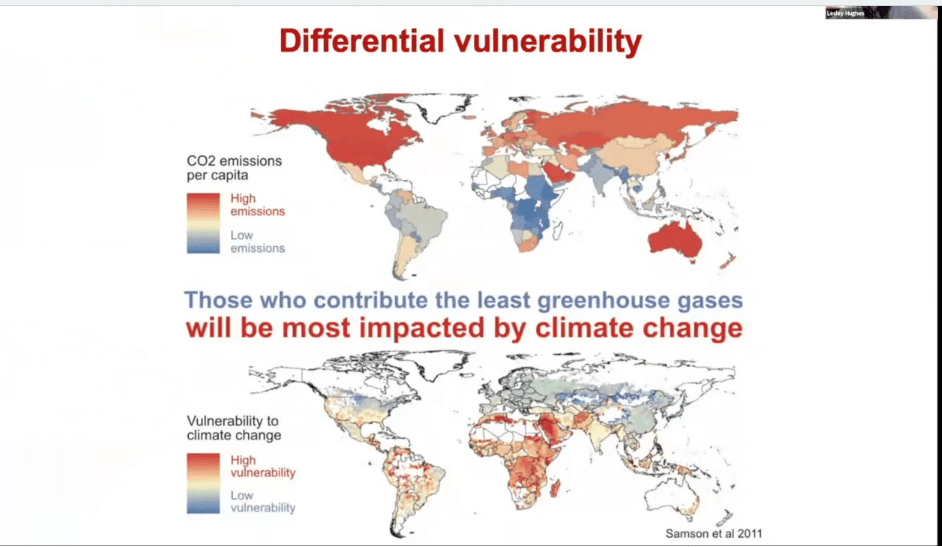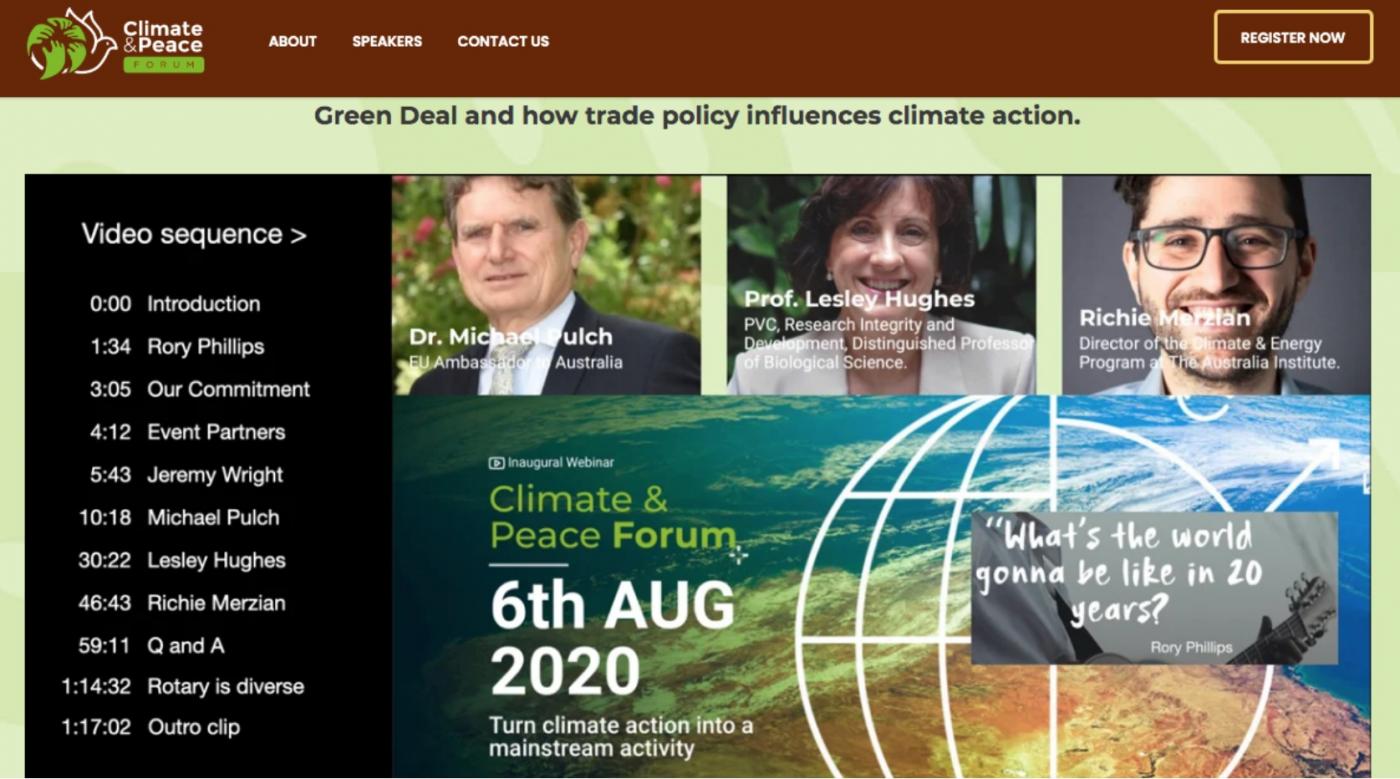On Aug 6, Australians planted the Rotary flag in the vanguard of international action to save humanity from catastrophic climate change.
Climate and Peace Forum draws audience from six continents
That night the Rotary Clubs of Sydney Cove, Sydney, and Darling Harbour launched the first of their quarterly Climate and Peace Forums, presenting three passionate speakers preeminent in their fields: Dr. Michael Pulch, European Union Ambassador to Australia, Lesley Hughes, Distinguished Professor of Biological Science at Macquarie University, and Richie Merzian, Director of Climate and Energy at The Australia Institute, one of the country’s leading think tanks.
Over 400 people – an estimated half of them non-Rotarians – registered from six continents.
In the Forum, Dr. Pulch describes the European Green Deal , the E.U.’s commitment of public policy and a huge infusion of finance to the goal of transforming Europe into “the first climate-neutral continent” decoupled from fossil fuels and unsustainable consumption. He outlines the plan’s integrated strategies on energy generation, agriculture, building codes, retraining for displaced workers, trade, and foreign aid.
Prof. Hughes conveys the humanitarian crisis already unfolding across the planet. Using maps, statistics, graphs, and harrowing photographs, she showed the stark injustice of how untrammeled first-world consumption is ravaging developing countries through floods, drought, and crop failure. She pleads for action on their behalf as well as for our children’s and grandchildren’s generations.

Merzian, who served as Australia’s lead negotiator on adaptation to the UN Framework Convention on Climate Change, brings the situation home to Australian listeners by revealing that Australia is the world’s largest exporter of fossil fuels. Its citizens have one of the highest per capita carbon emissions in the world.
But their outsized impact gives Australians, he says, “a big opportunity to contribute to climate action, especially in free trade negotiation with Europe.” He shows a graph of how steeply Australia’s emissions fell during the two years the nation had carbon pricing in place, and points out that employment rose at the same time. He also encourages the audience by sharing recent polling data showing that — despite the political wrangles over fossil fuels — the vast majority of Australians see climate change as an urgent problem.
The 80-minute broadcast concludes with a dynamic introduction by forum moderator Rob Edwards to the humanitarian mission of Rotary and the astonishing array of Rotarians’ environmental initiatives across the globe. Rob, a member of the Corrimal Rotary Club, encourages viewers to join a Rotary Club near them to become part of the solution.
Sponsored by business, philanthropic, and academic sponsors and ESRAG’s ANZPI* Regional Chapter, the online Climate and Peace Forum series is free to any participant.
The recorded talks are posted on the on the Climate and Peace forum website as a permanent resource that Rotarians anywhere can use to launch discussions.
ANZPI* members encourage fellow Rotarians to follow the Sydney clubs’ example in convening their own regional stakeholders to collectively build the understanding and will to forge effective climate actions in their specific context.
*ANZPI = ESRAG Regional Chapter for Australia, New Zealand, and the Pacific Islands
